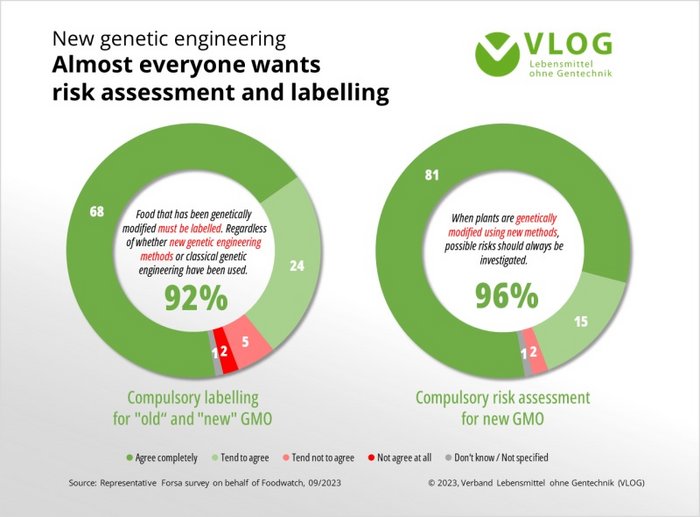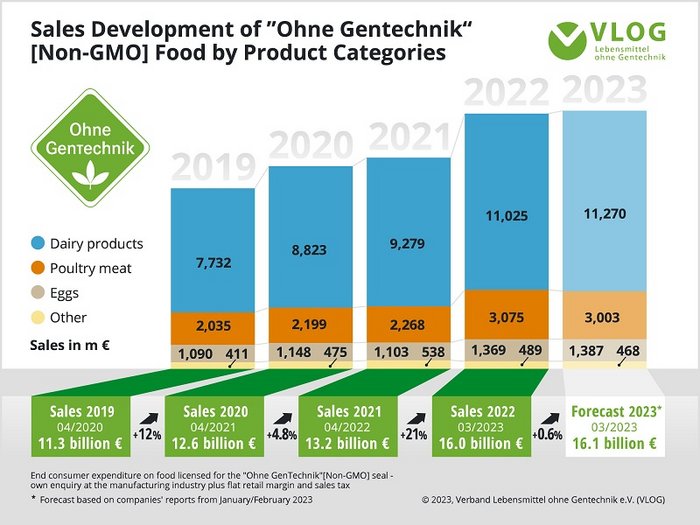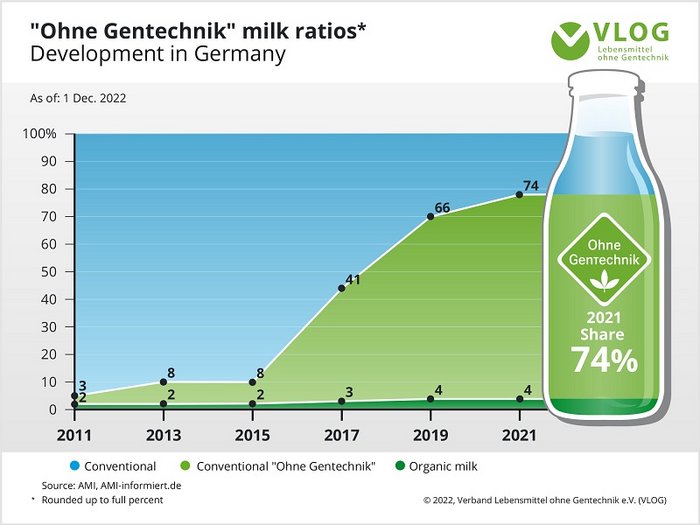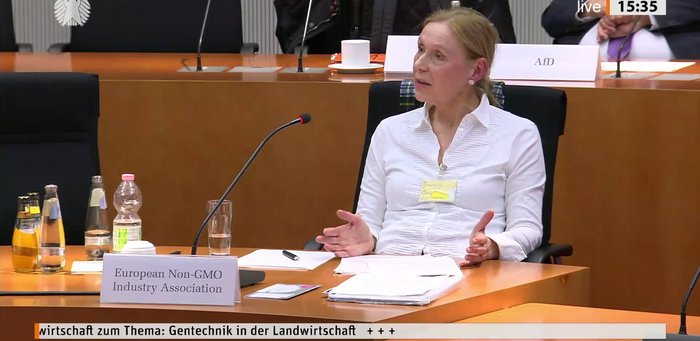Press
All press releases and press statements
If you would like to receive our press releases by e-mail, we will be happy to add you to our press mailing list.

Survey: "Ohne GenTechnik" should not include any new genetic engineering either
81 percent of people familiar with the "Ohne GenTechnik" (Non-GMO) seal expect it to exclude also new genetic engineering such as CRISPR. The EU Commission's deregulation plans are therefore a major challenge for producers and retailers.

GMO-free requires dialogue and cooperation along the entire value chain
Consumers want food that is produced without genetic engineering and deforestation. There is sufficient Non-GMO, deforestation-free feed (made from Non-GM soy) available for the European market, but equitable supply relationships and long-term contracts are necessary to ensure the supply security. These were the key conclusions from the International Non-GMO Summit, which took place in Frankfurt on 10 May 2023.
![[Translate to English:]](/fileadmin/user_upload/08_presse/_processed_/5/3/csm_NonGMOSummit_nurLogo_800x390_96fefd24b7.jpg)
International Non-GMO Summit 2023 on May 9-10th in Frankfurt, Germany
This May (9-10th) will see the first ever International Non-GMO Summit taking place in Frankfurt am Main, Germany. The Summit will be an unprecedented get-together for all parts of the Non-GMO value chain – from the major raw materials providers to traders, food producers and through to retailers.

"Ohne GenTechnik" is the most distinct food label - and should remain so!
The [German] Quality Seal Monitor 2023 certifies, the green "Ohne GenTechnik" (Non-GMO) diamond has the most distinct content of the 20 food seals analyzed. To ensure that this remains the case, the EU's GMO standards must be preserved.
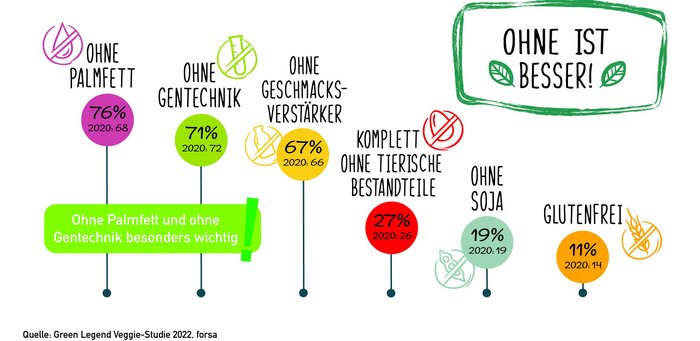
International Green Week: "Ohne Gentechnik" important for meat substitutes according to survey
Meat substitutes are booming and will also be in the spotlight at the International Green Week food fair 2023 in Berlin. According to a new study, absence of genetic engineering is at the top of the wish list.

Products sold for over 13 billion euros: Maintaining the successful "Ohne Gentechnik" label
Consumers spent around 13.2 billion euros on "Ohne Gentechnik" (Non-GMO) products in Germany in 2021, 4.3 percent more than in the previous year. Therefore, the label remains on a winning streak in its 13th year. Current challenges include possibly new EU GMO rules and deliberately stoked uncertainties around the issue of feed availability.

Sufficient GMO-free rapeseed available: Adequate payment for quality!
Some industry associations repeatedly try to exploit market uncertainties by toppling proven quality standards in agricultural production. Currently, the war in Ukraine is being used to claim an alleged threat of non-availability of GMO-free feed.


